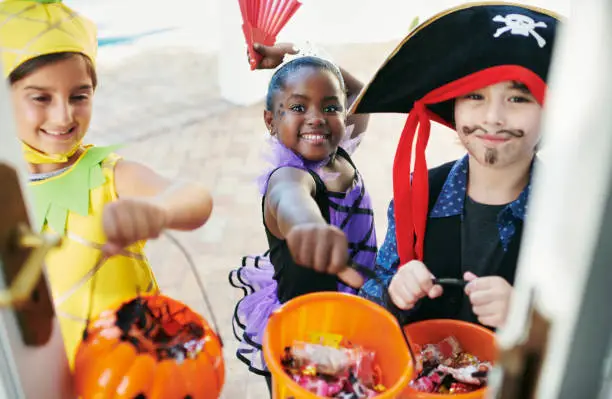We’re letting you know that this post contains sponsored links which Your Savvy Purse receives compensation for, which may impact their order of appearance.
As Halloween approaches, excitement fills the air, and children of all ages eagerly prepare for a night of costumes and candy. However, a question often arises among parents and teens: how old is too old for trick-or-treating? While the tradition is typically associated with younger kids, the answer may be more nuanced than you think.
The Evolution of Trick-or-Treating
Trick-or-treating has been a beloved Halloween tradition for decades, initially stemming from ancient practices where communities would celebrate the harvest and ward off spirits. Over the years, it has evolved into a fun night where children don costumes and visit homes in search of treats.
As kids grow older, the line between trick-or-treating and other Halloween festivities often blurs. Many teenagers enjoy dressing up, attending parties, or hosting haunted houses, leading to the debate: is there an age limit to this childhood rite of passage?

Factors to Consider
1. Local Norms
In many neighborhoods, trick-or-treating remains popular among children up to 12 or even 14 years old. However, some communities might have unwritten rules about appropriate ages for trick-or-treating. Observing what’s typical in your area can help gauge when it might feel out of place.
2. Costumes and Attitude
The spirit of Halloween is about fun and creativity. If an older teen puts effort into a clever costume and approaches the night with the right attitude—respectful and enthusiastic—there’s no reason they can’t join in the fun. A homemade costume or a fun group theme can keep the experience light-hearted.
3. Social Circles
Peer influence plays a significant role in decision-making at any age. If friends are planning to trick-or-treat, it might feel more acceptable for older teens to join in. Conversely, if most friends are opting for parties or other activities, it might signal that it’s time to transition away from traditional trick-or-treating.
4. Safety Considerations
Safety is paramount during Halloween. For older teens, trick-or-treating can involve different challenges, such as navigating busy streets or ensuring they are safe while out late. Parents may feel more comfortable if older teens are trick-or-treating in a group rather than alone.
5. Alternative Celebrations
As kids grow older, Halloween can evolve into other celebrations. Teens can host costume parties, attend haunted houses, or participate in community events that allow them to celebrate without trick-or-treating. These alternatives can be just as fun and engaging while providing a new way to embrace the holiday.
Conclusion
Ultimately, there’s no definitive age cut-off for trick-or-treating—it depends on individual circumstances, community norms, and personal comfort levels. The most important factor is the spirit of Halloween: creativity, fun, and community. If you’re a teen wondering whether it’s time to hang up your candy bucket, consider how you feel about the tradition and whether you can participate respectfully and joyfully. After all, Halloween is about making memories, no matter your age!



